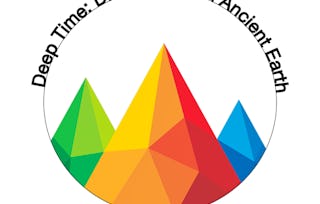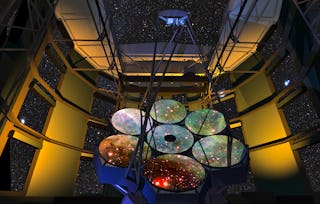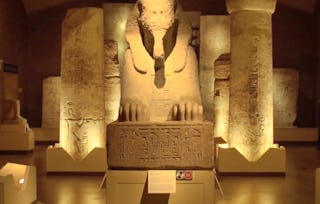Archaeoastronomy is the “science of stars and stones”. It is an interdisciplinary science in between architecture, archaeology, and astronomy. It studies the relationships between the ancient monuments and the sky, in order to gain a better understanding of the ideas of the architects of the past and of their religious and symbolic world. The course provides the first complete, easy introduction to this fascinating discipline.

Archaeoastronomy

1,449 reviews
Recommended experience
What you'll learn
The science of stars and stones.
Skills you'll gain
Details to know

Add to your LinkedIn profile
7 assignments
See how employees at top companies are mastering in-demand skills

There are 7 modules in this course
In this week we shall learn the basic tools which are needed for studying Archaeoastronomy. Essentially, this means learning Astronomy with the naked eye, since the ancients did not have telescopes, and becoming acquainted with a simple instrument - the magnetic compass - and amazing softwares: virtual globes and digital planetariums.
What's included
5 videos1 reading1 assignment
The core of the course: understanding how astronomy, religion, and the management of power were connected in ancient cultures, and the way in which these connections are reflected in architecture and landscape since the Neolithic. At the end of the week we shall thus visit the places where Archaeoastronomy was born: Stonehenge and Newgrange.
What's included
4 videos1 assignment
An archaeoastronomical tour in a wonderful land: Egypt of the Pharaohs. We shall visit Khufu's (Cheops) Great Pyramid and assist to the spectacular hierophany which occurs every year at Giza at the summer solstice. Then, we shall move to the huge temple of Karnak at the winter solstice, to finally encounter the "heretic" king Akhenaten and the astronomy-related project of his new capital.
What's included
5 videos1 assignment
An introduction to pre-Columbian Archaeoastronomy, with key topics such as the Maya Calendar, the role of astronomy in Maya architecture, and the sacred space of the Incas at Cusco and Macchu Picchu.
What's included
4 videos1 assignment
An archaeo-astronomical visit to fascinating places of ancient Asia: the Xian area, with the Terracotta Warriors and the pyramids of the Chinese Emperors of the Han Dynasty, and Angkor (Cambodia) with Angkor Wat and the other state-temples of the Khmer Kings.
What's included
4 videos1 assignment
A fascinating travel in Greek and Roman Italy, in search of astronomy in the project of some of the masterpieces of the classical age, from the Greek temples of Sicily to the Pantheon in Rome.
What's included
3 videos1 assignment
Archaeoastronomy is not only "speaking about the Sun and the other stars". Interest in the cumbersome, apparent motion of the Moon and in the alternating behaviour of Venus as morning star/evening star is also present in ancient architecture, for instance in the Americas. This section provides the tools needed to investigate in such cases, as well as insights on the physical effects affecting measures in Archaeoastronomy.
What's included
1 video18 readings1 assignment
Instructor

Offered by
Explore more from Physics and Astronomy
 Status: Preview
Status: PreviewUniversity of Arizona
 Status: Preview
Status: PreviewUniversity of Colorado Boulder
 Status: Preview
Status: PreviewUniversity of Arizona
 Status: Preview
Status: PreviewUniversity of Pennsylvania
Why people choose Coursera for their career

Felipe M.

Jennifer J.

Larry W.

Chaitanya A.
Learner reviews
- 5 stars
65.58%
- 4 stars
26%
- 3 stars
6.55%
- 2 stars
1.37%
- 1 star
0.48%
Showing 3 of 1449
Reviewed on Oct 15, 2020
The overall course was good but I personally found the last test difficult. I had to read for the test from other websites as I found the readings provided in week 7 insufficient for the test.
Reviewed on Aug 1, 2020
The subject matter was exactly what I hoped it to be: a new approach to interpreting ancient structures. Week 7 was more intense than I expected but informative nonetheless.
Reviewed on Jun 3, 2017
I volunteer at a public observatory in the UK and wanted some extra material for our guests. I thought Archeoastronomy would be an inspiring and insightful topic to add to the history of astronomy.

Open new doors with Coursera Plus
Unlimited access to 10,000+ world-class courses, hands-on projects, and job-ready certificate programs - all included in your subscription
Advance your career with an online degree
Earn a degree from world-class universities - 100% online
Join over 3,400 global companies that choose Coursera for Business
Upskill your employees to excel in the digital economy
Frequently asked questions
To access the course materials, assignments and to earn a Certificate, you will need to purchase the Certificate experience when you enroll in a course. You can try a Free Trial instead, or apply for Financial Aid. The course may offer 'Full Course, No Certificate' instead. This option lets you see all course materials, submit required assessments, and get a final grade. This also means that you will not be able to purchase a Certificate experience.
When you purchase a Certificate you get access to all course materials, including graded assignments. Upon completing the course, your electronic Certificate will be added to your Accomplishments page - from there, you can print your Certificate or add it to your LinkedIn profile.
Yes. In select learning programs, you can apply for financial aid or a scholarship if you can’t afford the enrollment fee. If fin aid or scholarship is available for your learning program selection, you’ll find a link to apply on the description page.
More questions
Financial aid available,

